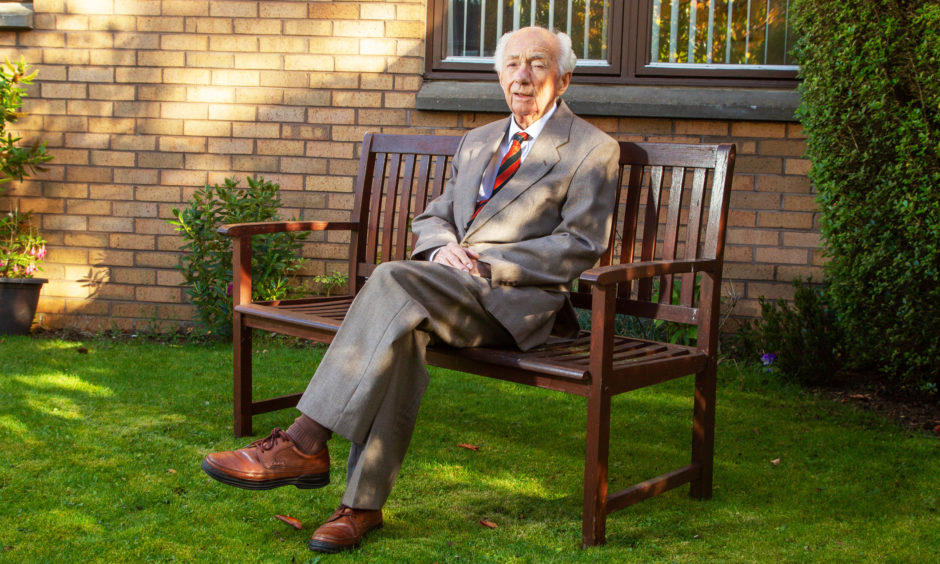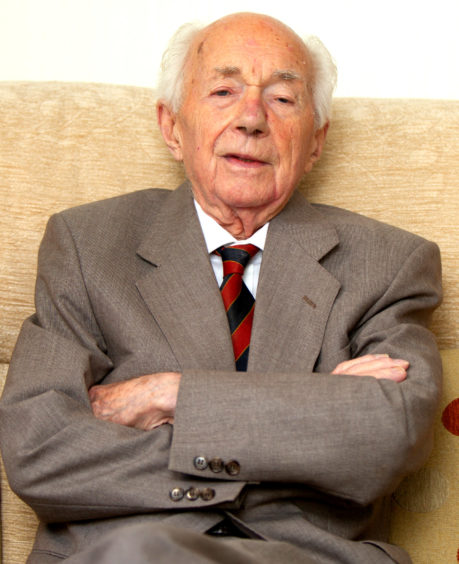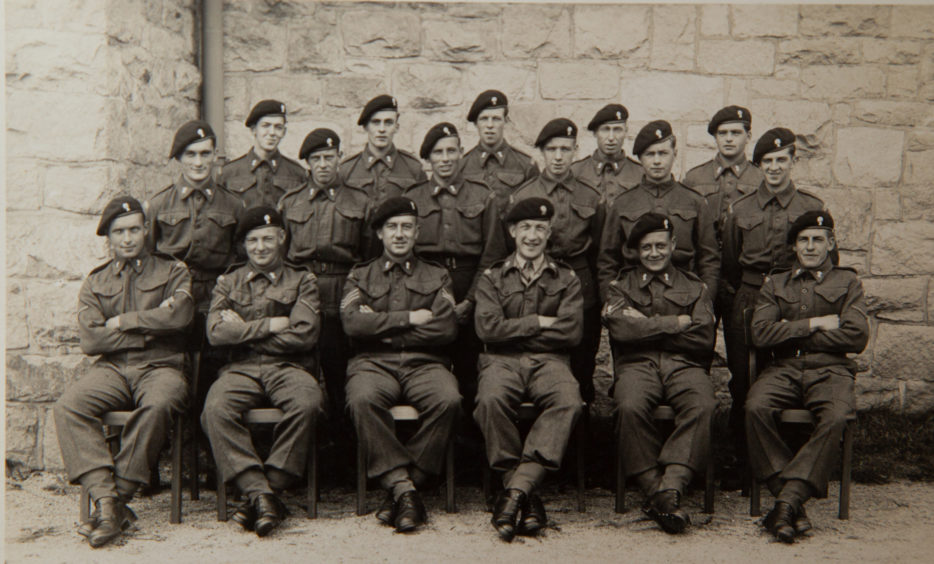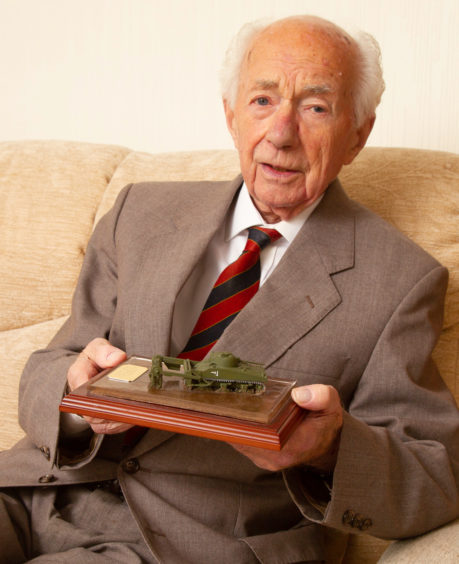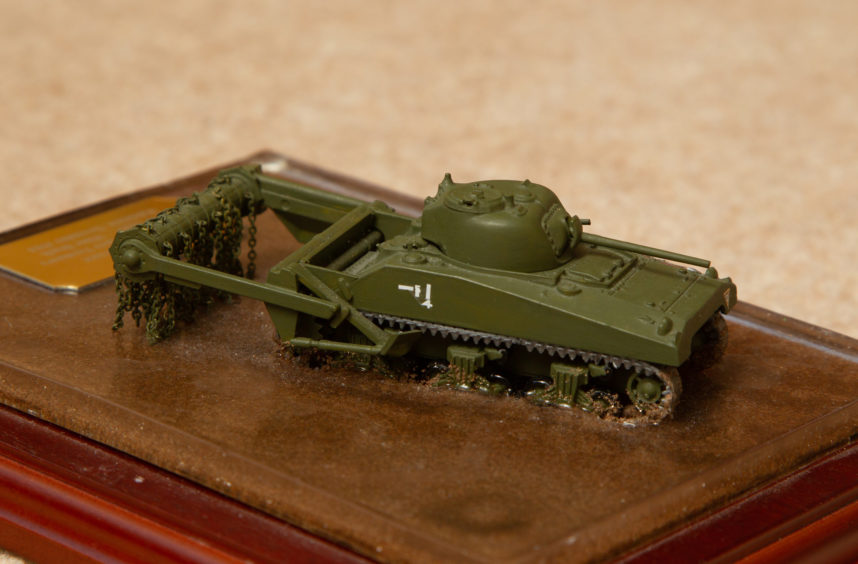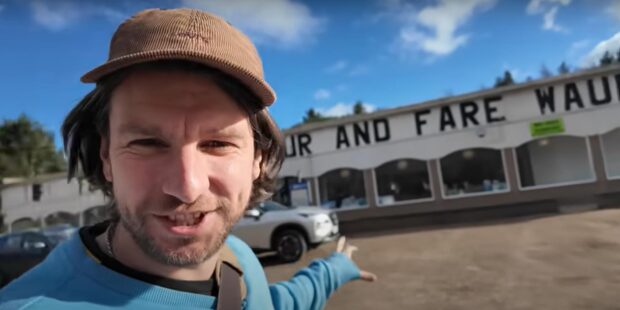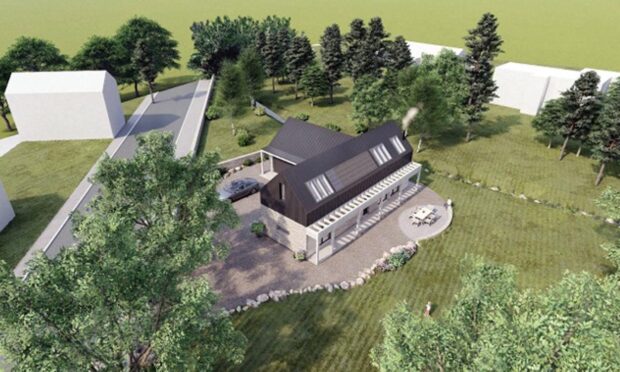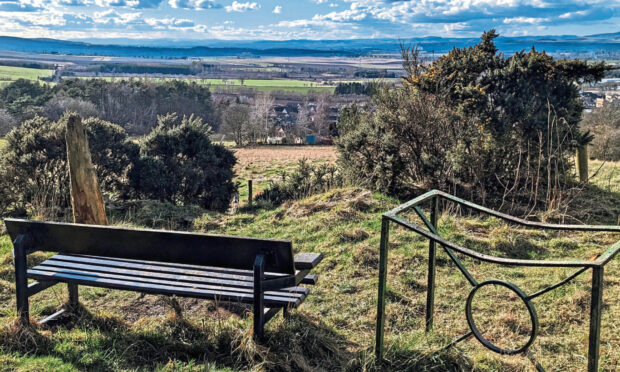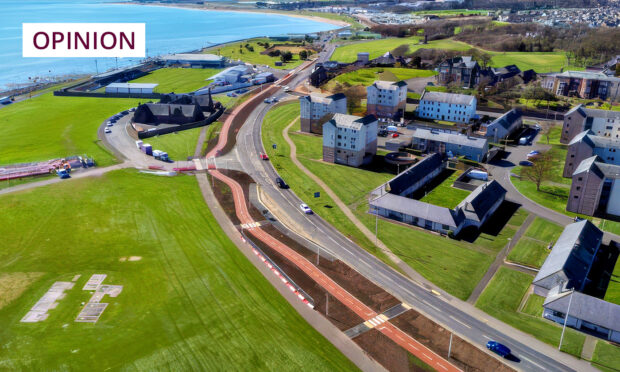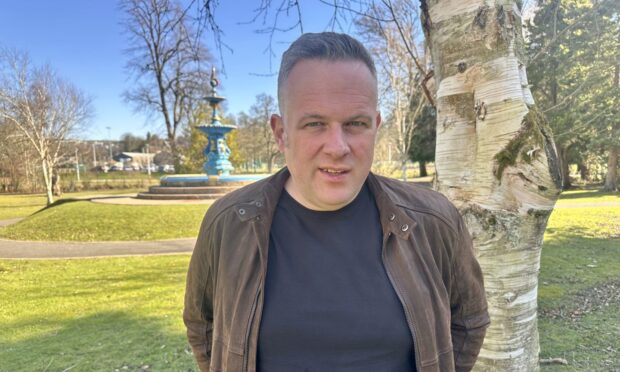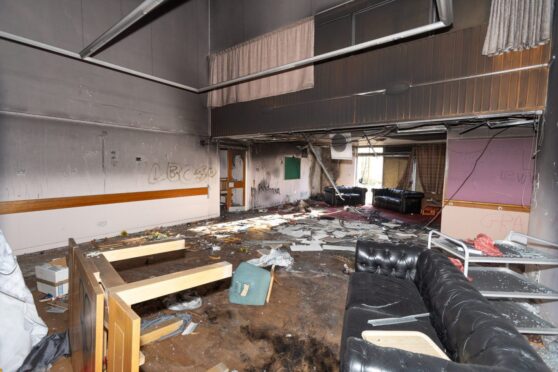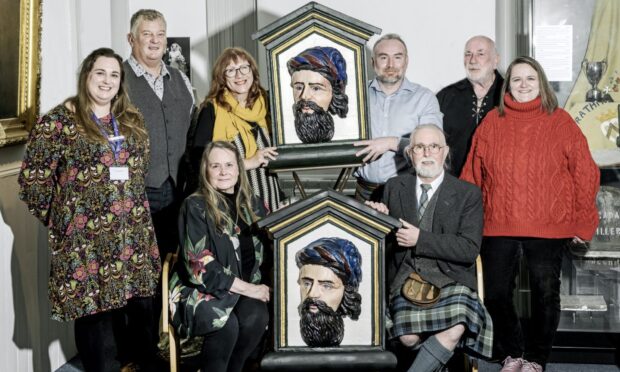Michael Alexander meets Monifieth Second World War veteran Ron Bruce who was in the midst of the “forgotten” Walcheren Landings during the Second World War 75 years ago this week.
Locked inside a tank on board a landing craft as enemy shells rained down and blasted nearby troop ships to smithereens, a young trooper splashed his tank on to the beach only to find that the invasion planners had underestimated the consistency of the sand meaning that the vehicle immediately become stuck fast on the beach.
To make matters worse, after hunkering down in their trapped tank for the night, the young crew awoke next morning to discover that their supposedly watertight compartment had filled with seawater up to their knees.
It reads like every soldier’s worst nightmare.
But that’s exactly what happened to former 1st Lothians and Border Yeomanry trooper Ron Bruce of Inchture – now of Monifieth – as he took part in the Second World War’s “forgotten” Operation Infatuate at Walcheren, off Holland, 75 years ago.
The then 19-year-old former Perth Academy pupil was part of the Anglo-Canadian operation that got under way on November 1, 1944, to open the Belgian seaport of Antwerp to shipping and relieve logistical constraints.
Now, in an exclusive interview at his home in Monifieth to mark the 75th anniversary of what is sometimes regarded as having been a “mini-D-Day landing”, 94-year-old Ron relived those events from the closing months of the war , and told of the lasting, sometimes haunting, impact that conflict has had on his life.
“We spent weeks preparing for the attack on Walcheren,” said Ron who arrived in Normandy 30 days after D-Day and quickly found himself in action helping to liberate the channel ports.
“On the day of the assault we were in a flotilla of landing craft and infantry. There were planes and the continual rocketing of German gun emplacements.
“The RAF were late because the airfields of England were covered in fog. A couple of battleships were lying off and using their guns to soften the Germans up.
“But as we crossed a lot of the landing craft were being hit. Then when we drove off, we sunk down into the beach and couldn’t get any further. It wasn’t tank country.
“We were in an alien position. We were inside a tank – a little compartment that had been waterproofed. Only the tank commander could blow the hatches open. There we were in water. We were scared!”
While Antwerp had been liberated on September 4, 1944, as the Allies swept across France and the Low Countries in pursuit of the Germany Army, it could not be used as a supply base for the Allies until the east bank of the Scheldt had been cleared of Nazis.
The well-armed island of Walcheren, which commanded the approaches to Antwerp at the mouth of the Scheldt, was garrisoned by a heterogeneous force of some 10,000 German army, navy and air force men as well as being defended by much concrete and wire and a great many anti-tank obstacles and mines.
With most of the island below sea level, the plan was to assault it from two directions: at Flushing by No. 4 Commando with the 155th Infantry Brigade and a squadron of Buffaloes, and at Westkapelle by the 4th Commando Brigade with a regiment of Buffaloes.
In addition, a special team of 79th Armoured Division units, with which the 1st Lothians and Border Yeomanry were embedded, was to land south-west of Westkapelle on the flanks of one of the now tidal breaches that had been created in the dyke by RAF Bomber Command.
It was into this hell that the Perthshire teenager found himself – bogged down on ‘White Beach’ at the controls of a special flail tank that was supposed to use the special drum and chains on the front to clear any mines – but ultimately thankful that commandos had at least managed to clear the cliff top gun emplacements occupied by the Germans.
After discovering their tank was “absolutely ruined” as the water had got into the electrics, Ron and his tank mates eventually walked to Flushing and were shipped to Antwerp where they were gratified to see the success of the mission had already allowed supplies to be shipped in.
By the time the war in Europe ended in May 1945, Ron was “somewhere in Germany” and ended up in a desk job with the 8th Hussars before leaving the army in 1947. He returned to Dundee where he spent many years working in the office of the South Mills jute mill on Brown Street. His older brother Willie, who served with the Black Watch, also made it home safely.
But while the widowed grandfather tries to remember the “funny things” that happened during the war – such as the time he accidentally broke his tank instructor’s arm while driving too quickly into a crater during training – he reveals that he is also still haunted by certain dark memories.
He vividly remembers a French woman trying to remove a jackboot from the severed leg of a dead German and the time when a colleague thought it would be funny to push over a “stone cold dead” German still kneeling in a bunker – only for the trapped air in his body to let out a terrible groan as it keeled over.
He remembers a ‘friendly fire’ incident by the Americans who he didn’t have much time for and the night when he and his colleagues were asked to help pull a Fife and Forfar Yeomanry flame-thrower vehicle out of a crater only to come under heavy German mortar fire.
“It’s a bit tricky,” he said when asked if he thinks much about the war.
“I find it’s bedtime the memories come back. You’ve got to be very very careful. If you keep thinking, you won’t sleep. You’ve got to think about something else…”
